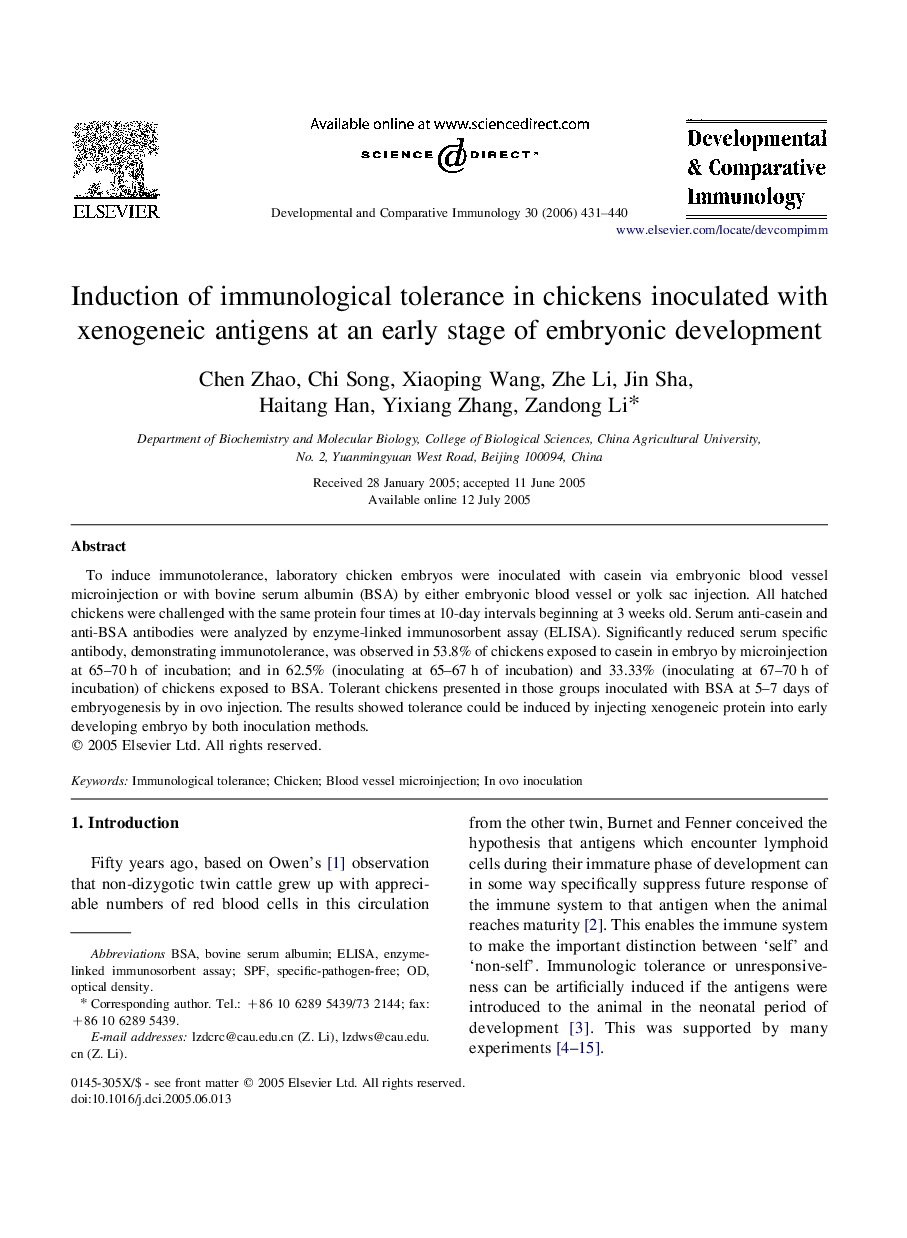| Article ID | Journal | Published Year | Pages | File Type |
|---|---|---|---|---|
| 2430516 | Developmental & Comparative Immunology | 2006 | 10 Pages |
To induce immunotolerance, laboratory chicken embryos were inoculated with casein via embryonic blood vessel microinjection or with bovine serum albumin (BSA) by either embryonic blood vessel or yolk sac injection. All hatched chickens were challenged with the same protein four times at 10-day intervals beginning at 3 weeks old. Serum anti-casein and anti-BSA antibodies were analyzed by enzyme-linked immunosorbent assay (ELISA). Significantly reduced serum specific antibody, demonstrating immunotolerance, was observed in 53.8% of chickens exposed to casein in embryo by microinjection at 65–70 h of incubation; and in 62.5% (inoculating at 65–67 h of incubation) and 33.33% (inoculating at 67–70 h of incubation) of chickens exposed to BSA. Tolerant chickens presented in those groups inoculated with BSA at 5–7 days of embryogenesis by in ovo injection. The results showed tolerance could be induced by injecting xenogeneic protein into early developing embryo by both inoculation methods.
